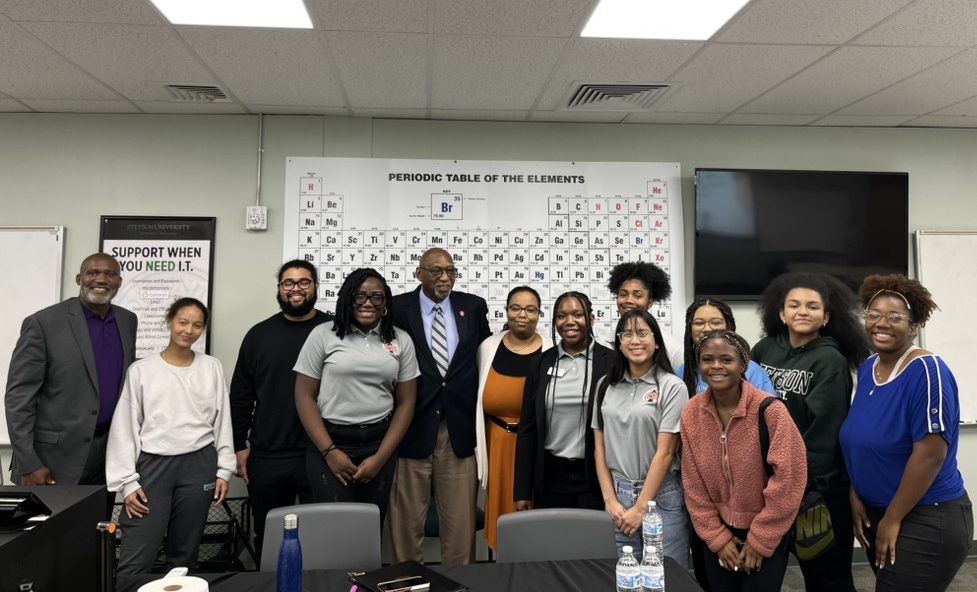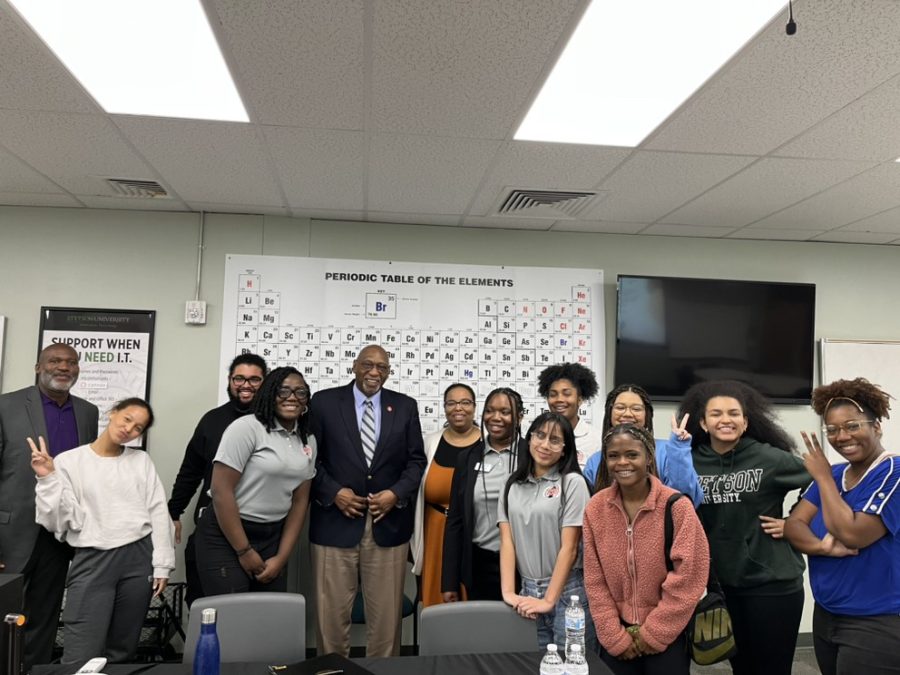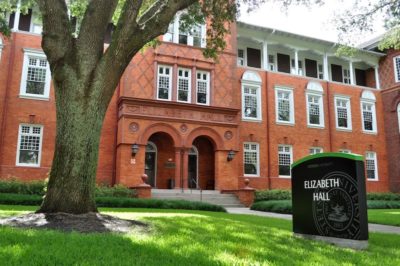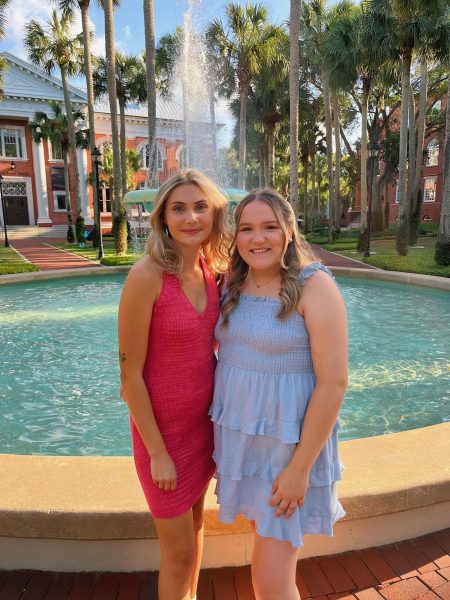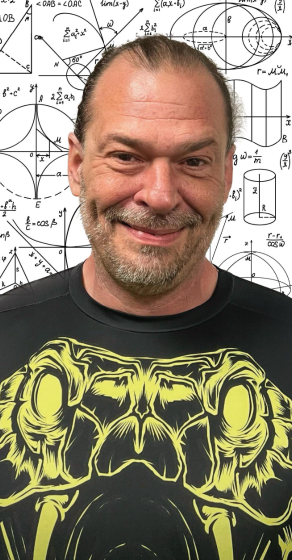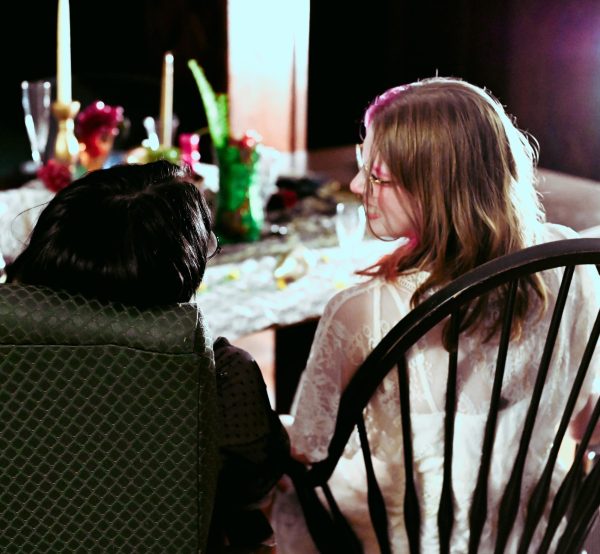How BSU’s Recent Keynote Speaker can Remind Stetson of its Core Values
In light of Stetson’s most recent controversy with its Young American Fellows (YAF) organization encroaching on the rights and safety of the LGBTQ+ community, it appears that Stetson needs a strong reminder of its values and priorities. Respect, safety, support, and kindness to all Stetson students and staff are what is always expected and what was promised to students when we first joined the Stetson Community. Yet, it seems that the most recent occurrences have revealed that these priorities have been and are currently being neglected on campus. We, as the Stetson community, need to revisit these values and once again continue to genuinely endorse them throughout campus. Thankfully, BSU (Black Student Union) has already begun this pursuit.
On November 17th, The Black Student Union (BSU) cordially invited the formerly appointed and currently retired Supreme Court Justice James E. C Perry to speak amongst the Stetson community. Justice Perry reiterated the need for social activism by enlightening students about his own trials and tribulations as a black man in America. Justice Perry’s words were substantially insightful and encouraging as he went over, what I believe, were several critical principles needed for those fighting the endless fight to protect their rights, safety, and overall livelihood.
Before I highlight the several principles that I believe were conveyed by Justice Perry, I want to uncover the identity of Justice Perry through his own words. James E. C Perry was the 84th Justice of the Supreme Court in Florida starting in 2009 and officially ended his time in the office around 2016. In the course of Justice Perry’s speech, he reminisced on his youthful years. He described growing up in America during the tumultuous 1960s; a time filled with grim division, vile prejudice, and unjust discrimination against black people. Nonetheless, also a time of hope as activists striving for social justice were led by many passionate leaders (such as Martin Luther King Jr.) and as many unjust rules and regulations were finally beginning to unravel.
These injustices included earlier cases such as Brown v. Board, which Justice Perry himself mentions is the first demonstration he had taken part in at the mere age of 11. To further reveal his fervor and passion, Perry became the Vice President of the Student Council at his graduating high school. After high school, he had been drafted into the military where he was branded as a leader. After offering his service to the military, however, Perry returned home only to bear witness to a grim reality, a world where Malcolm X and MLK no longer walked. Their passing, however, had only inspired Perry to continue their legacy by fighting for social justice. And in doing so, he decided to continue with his education and return to law school.
Upon trying to enter law school, Perry was required to pass the bar exam; one of the first of the many challenging barriers that had stood in Perry’s way as he strived to finish his education. Perry had applied to as many law schools as he could to take the bar exam, however, after several attempts he had unfortunately kept failing them. From Perry’s telling at the BSU meeting, it seemed that no matter how many times Perry failed the bar exams, he did not get discouraged and kept striving. His vigor eventually led him to pass the bar exam at a law school in Florida and years later, he was even accepted into the law school for Columbia University for Graduate school, where he eventually graduated from.
At this point, Perry had established many accomplishments, but nonetheless, when it came to applying for a judge position in Florida’s Seminole County, he was flat-out rejected. This is where Perry began truly experiencing, on a personal level, the inequality of an unjust system. During the meeting, Perry mentions, there had never been another black judge in Seminole County since 1885, and according to the actions he had taken, as he describes soon after, it seemed that Perry desperately wanted to change this. After having applied and been rejected twice, Perry applied for the position of judge again in 1999 and officially got accepted. Finally, after hard work, Perry got his recognition, and after only 3 years of working, he was appointed as the Chief Judge of Seminole County. Which, as Perry stated, hadn’t been appointed for the last 13 years before he came into office.
After working as the Chief Judge for some years in Seminole County, Perry was ultimately invited by the Tallahassee Supreme Court to work with them. This is where he would officially receive the title of Justice Perry. As Justice, Perry was able to accomplish many things such as helping create more jobs and creating a Jackie Robinson Little League for young black children within his community. Justice Perry describes his beloved little league and states how he believes it had bought young boys of color within the community together. This allowed them to be a part of something, as well as rediscover their culture. He mentions how some of the kids appreciated and adored being on the team so much that they would even wear their uniforms to sleep. Justice Perry wanted to make a change in the community and wanted to fight off inequality wherever he could.
According to Justice Perry, one of his proudest accomplishments was advocating for the no-death penalty. Although the issue of the death penalty is controversial as many people stand on different sides of the argument, Justice Perry believes the system is unjust due to the majority of those being sentenced to death are primarily black. Upon some research, Justice Perry’s words are supported as it has been revealed that a disproportionate total of 43% of people of color have been executed, while 53% of them are still currently awaiting execution despite black minorities only making up 13% of the United States. On top of this, there have been many reports stating that racial prejudice exists within the application of the death penalty.
All this is to say, Justice Perry struggled and strived to get where he is today (even now as he is retired) and he fought for social justice the way he believed he could. And in doing so, he found a way to teach others his ways and give advice to others fighting for the same causes or experiencing similar challenges. This leads me back to my own interpretation of what I believe are several principles Justice Perry wanted to convey to those fighting the arduous fight for social justice and equality. Throughout his speech, Justice Perry stressed the need to unite and depend on one another more, as doing so will reveal the true purpose of what we are all fighting for. So, there’s the principle of unity. Then, there’s what I would classify as the principle of courage. When asked about being afraid for his safety, he warns of the possibility of fear, however, he states that one must understand what comes with fighting the hard fight, you can’t let fear stop you. Fighting the fight doesn’t mean you’re not afraid, but that you have courage and you’re willing to overcome the fear. He describes that one should maintain integrity, exercise common sense, and understand the purpose of why you are fighting.
The next one I classified as the principle of identity. Justice Perry praised the notion of one just being themselves, to be who you are without thinking there is someone superior or inferior to you. Don’t let the idea of superiority or inferiority define who you are as a person, because you can do anything you think you can. “Take what you do seriously but never yourself,” Perry gracefully stated during the meeting. Then, there are the principles of knowledge, wisdom, and vigor: always speaking truth to power, giving logic, and pushing until you can get whatever it is you need to get done. Although I organized his words into several principles based on my own interpretation, these are the words Justice Perry spoke, and what I believe is what he wanted to convey to the Stetson body. More personally my favorite line of all stated by Perry was: “The system is not failing, it’s succeeding, and therefore, we must overcome the system to obtain equality for all.”
I want to emphasize how significant Justice Perry’s speech and presence on campus was during these times of great uncertainty. I believe his words needed to be heard to encourage those fighting for social justice on campus whether it be for equality, rights, and safety for the LGBTQ+ community, the Asian community, the Latinx community, or as Justice Perry himself fought, for the black community. I also believe his words were a good reminder of what Stetson’s core values are supposed to be, how the whole Stetson community should respect one another, be kind to one another, help keep each other safe, and support one another. We should all strive to uphold these values and I believe BSU did a good job in helping students be reminded of this by inviting Justice Perry.
